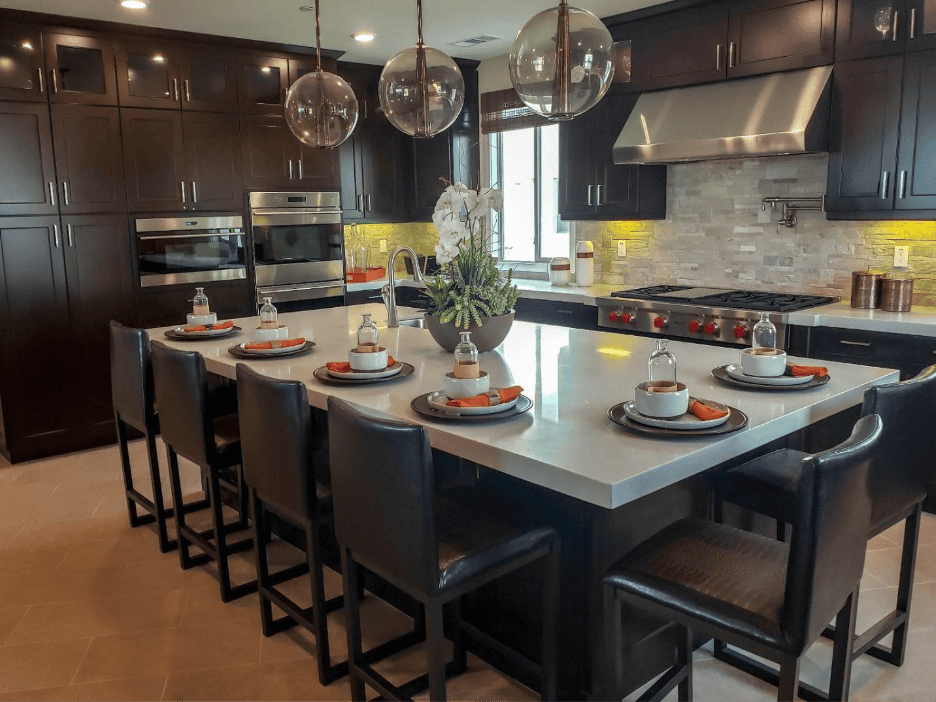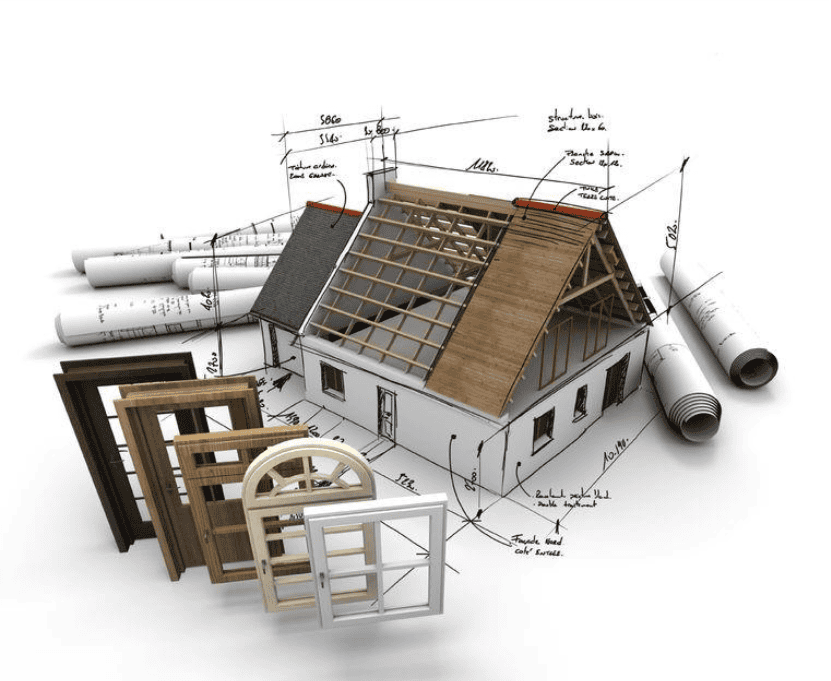Home Renovations For Your Houston House Improvements
Home Renovations For Your Houston House

Home Renovations That Maintain & Increase House Values in Houston
Marwood Construction is a Houston premier house renovation contractor that offers full-service home renovations for our valued Houston customers. As a high-end home renovator serving the Houston metro areas, we provide trusted guidance and advice concerning complete home renovation solutions for your lifestyle needs.
As experts in residential construction, we have earned a good reputation for providing sound fiscally responsible advice through a professionally transparent and collaborative approach for reaching desired results.
What are Home Renovations?
Home renovations are generally thought of as being cosmetic repairs to improve the authentic appearance of your home.
Home renovations are a collection of house improvements that typically can be placed into 1 of 3 categories.
- Service dwelling maintenance – replacing the wood siding, painting exterior, hot water heater & A/C component replacement. These are improvements that frequency occurs with the aging of a house. The older a home gets the greater the frequency and likelihood of these types of renovations will be required. If ignored long enough, these items can lead to property casualty repairs.
- Property Casualty Repairs – these improvements are associated with storm damage or catastrophic accidents related to property damage claims made against your property insurance,
- Upgrading the Houses Finishes - flooring replacement, plumbing & electric fixture replacement, counter top replacement front door replacement to mention a few

What is the Difference Between Home Renovations and Remodeling?
These two different house improvement terminologies are commonly used interchangeably in the industry. It can be expected that one may hear one of these terms being used to express both definitions.
Technically speaking, the principal difference is that home renovations are typically for improving the cosmetic appearance of your house, while remodeling is associated with changing the floor plan involving structural changes like moving the location of floor mounted fixtures or walls.
| Feature | Renovation | Remodeling |
|---|---|---|
| Scope | Surface-level updates and repairs | Structural changes and reconfiguring a space |
| Examples | Painting, refacing cabinets, changing light fixtures, new flooring | Moving or removing walls, adding a room, changing a kitchen's layout, building a deck |
| Complexity | Less complex, often DIY-friendly | More complex, often requires professional help, permits, and inspections |
| Cost | Typically, less expensive | Generally, more expensive |
| Design Plans | Not commonly required but could be helpful | An essential part of developing a scope of work, a budget and obtaining a building permit |
| Time | Often takes less time | Depends on complexity, can take significantly longer, especially for large projects |
Another major difference in renovations vs remodeling is the requirement for construction management. Home renovation projects can normally be managed by owners, provided they have the time and knowledge needed for a project.
Depending on the number of items in a house renovating project and how the trades overlap, in most cases a fairly straight forward renovating project can be directly managed by the owner, from hiring through completion.
This is usually not the case with home remodeling. Although it may cost an owner 15%- 20% more to hire a home renovator, this amount can be a bargain if your plans get screwed up or you get into a dispute over lack of clearly defined scopes of work.
The largest challenge with DIY projects is the contract and/or scope of work disputes. The legal fees of a dispute can cost more than the entire project.
Where as with renovation projects they are typically much more straight forward and do not require multiple subcontractors.

What are Home Renovation Improvement Items?

You are likelier to experience a larger number of home renovation projects during your ownership than you will with house remodels. This is because there are so many components used to construct a house.
As these products reach their service life, they require to be replaced. These components all have different service lives, due to the quality of the product or the quality of the installation when installed.
The absence of routine maintance also contributes to accelerated obsolesce.
But generally speaking, the older your house gets the more likely you will be faced with more home renovation projects
Typical Home Renovation Projects & Expected Service Life
| Exterior Improvements | Lifespan | Interior Improvements | Lifespan |
|---|---|---|---|
| Roof Replacements | 15–25 yrs | Cabinet Refinishing | 15–25 yrs |
| Doors Replacement | 25–35 yrs | Countertop Replacement | 20–30 yrs |
| Wood Siding Replacement | 15–25 yrs | AC Compressors | 10–15 yrs |
| Windows Replacement | 25–35 yrs | Floor Replacement/Repairs | 15–25 yrs |
| Exterior Painting | 10–15 yrs | Interior Painting | 10–15 yrs |
| Gutter Replacement | 10–15 yrs | Appliance Replacement | 10–15 yrs |
What are the Benefits of a Home Renovation?
The benefits of home renovations are a driving factor for owners making a sizable investment in their property. Although home renovation cost is not usually as significant as home remodeling cost, spending money on top of paying the mortgage and taxes requires some financial planning.
Evaluating renovating home can benefit your dwelling for functionality as well as financially and personally.
Financial Benefits
- Increase Property Value – either by maintaining or improvement, house renovating ultimate holds or increases the value of the property over the long-term
- Reduce Maintance Cost – by being proactive in tackling upcoming maintance, you reduce the severity of how much it could cost if you let it propagate.
- Lower Utility Expense – when improving items that affect utility cost, your house becomes more energy efficient and saves you money
- Eliminate Moving Expenses – although typically not considered a direct cost savings, but by not moving because of the condition of your dwelling, you are in fact saving a bundle
Functional Benefits
- Make House Products Functional – remodeling is usually more associated with increasing functional space issues, but by replacing products such as tile for carpeting or adding new appliances can greatly increase functionality.
- Improve Safety – installing grab bars, installing skid-free floors in wet areas can absolutely increase personal safety,
- Improve the Homes Amenities – renovating also provides owner an opportunity to upgrade the homes amenities when evaluating options,
Personal Benefits
- Personalizing your Space – when you renovate, you select new replacement products that become more customized to your personal taste,
- Modifications to a Changing Lifestyle – as we age in a home, our family and personal needs change. Renovating is an effective method for your home to deal with these changes,
- Increase the Ability to Sell – renovating helps improve the curb appeal and keeps a fresh look on the interior,
- Updating Design Style – renovating also gives the owner the opportunity to restyle areas of the house renovations and change outdated trending colors and products
How does the Home Renovations Process Work?
Most home renovation projects begin with the owner’s physical observations of the existing condition or reaction to accidental damages.
While collaborating with their selected home renovator, owners should evaluate their options for partial renovations or complete renovations of a room or a section of the house that is in need of updating or remodeling.
The owner’s assessment can be helped by the home renovator providing some preliminary budgetary guidelines for the different scenarios.
With aa approved concept budget, the owners and home renovator can discuss the need for required drawings, timelines and the general feasibility of the proposed project.
Once identified and depending of the urgency of the condition, the home renovation process begins.

Steps of Home Renovation Process
4. Pre-Construction –This step is for preparing design plans like cabinet shop drawings and finalizing finish colors. Beginning demo is also important to remove the existing items from the area being renovated.
What is the Cost of Home Renovations in Houston?
The home renovation cost is commonly the determining factor of the project moving forward decision.
The need for accurate cost information serves the needs of an owner when working on Houston home renovations , it allows the owner to create all financing options and consider upgrade options throughout the process.
Home renovation cost in Houston can range from $20,000 to $200,000 on average dwellings depending on the scope. For high end neighborhood properties, the cost can range from $200,000 – $2,000,000.
- Minor updates: Expect to pay between $25,000 and $40,000 for a minor kitchen remodel, such as new cabinet fronts, hardware, and countertops.
- Midrange renovation: A midrange kitchen remodel can cost around $75,000–$100,000.

- Luxury remodel: A high-end kitchen renovation can be $150,000–$250,000.
- Whole-home remodel: Costs typically start around $100,000. A sweet spot for many full remodels is $150,000 to $300,000. Costs can reach $500,000 or more for high-end finishes.
Factors that influence cost:
- Scope and scale of the project.
- Square Footage of Improvement Areas.
- Quality of materials and finishes.
- Age of the House, older homes require code updates,
- Labor costs, which have seen recent increases.
- Specific location and the type of home.
- Permits: Structural, plumbing, or electrical work often requires permits.

Access the Impact of Cost vs Value on Property Future Value
When evaluating the impact of the total cost of home renovations, owners should carefully consider the future value of the home renovations.
Although most house renovations add value to your home, in comparison of allowing the dwelling to linger in disarray. But all improvements do not have the same impact on future property values.
Studying your neighborhood and surrounding areas historic home sales prices will provide you a good indication of value increases over a period of time. Using this percentage factor as a multiplier, you can have a fairly good idea of the projected future sales price in the future.
Another quick conservative cost impact assessment is to 30% rule, which provides a guideline of considering a ceiling on home renovation cost of 30% of the value of your home’s market value.
How to Hire a Home Renovation Contractor Near Me?
Conducting a query for home renovation contractors near me can yield you a generous list and variety of home renovation contractors in your area.
Once you have a first round of house renovating company’s names, you need to qualify them for a fit with your project needs. The goal is to reduce the overall list to a short list of 2-3 qualified contractors to actually conduct your due diligence with.
Contractors for home renovation normally act as a prime contractor, contracting with subcontractors to perform trade services or self-performing through employee relationships with company.
Check their online reputation, view their work on their website, request certificate of insurance and get an understanding if this is a contractor you can work with
With this short list of home renovation contractor near me it is time to meet and discuss your renovating needs.

1.Share your photos & plans – sharing inspiration photos and product selections is helpful for your contractor to develop an understanding of your project needs
2. Discuss your budget range & selected products – discussing preliminary budget ranges provides the contractor and owner the opportunity to qualify a realistic budget range to help avoid both parties from wasting their time as well as creating an open dialog for value engineering discussions.
3. Request detailed bid proposal – with an understanding of the budget range and target product selections, the home renovator for properly prepare a detailed bid proposal.
4. Discuss any anticipated unforeseen problem with project – part of preparing expectations for dealing with removing existing products for replacement is discussing finding damages from uncovering conditions.
5. Openly discuss your expectations – discussing schedules, interruptions to utilities during renovating, work hours, change request and subcontractor conduct should always be discussed to establish working expectations.
6. Request an insurance certificate – always request an insurance certificate from the home renovator and question them about there company policy on subcontractor insurance requirements.
7. Request a payment schedule – a milestone progress payment schedule should always be part of the contract agreement on larger projects.
8. Sign a contract – a contract agreement is also important between both owner and renovator to define the terms and conditions when things don’t go as planned with the project.
9. Written warranty – get a copy of the home renovation contractor’s warranty.
For the Best Home Renovation Results
What is a Collaborative Process?
The collaborative process is when the owner trusts the house renovator during their business interactions enough to value their advice and experience.
This requires the renovator to qualify their comments and to align their interest with the owners. They must also look at situations from the owners view point.
From the owner’s side, they need to give their prime contractor the benefit of the doubt and that they are serving the owners best interest when things don’t go perfect.
The collaboration process between owner and contractors requires many of the elements of most successful relationships.
Collaboration between owner and home renovation contractor requires work on both party’s side like any professional relationship.
- Honest Open Communication – exchanging ideas and sharing your opinion creates an open level of dialog between renovator and owner creating a positive working relationship
- Mutual Respect – it should go without saying, but both owner and renovator being respectful of each other’s time, opinion and expertise is critical in maintaining a trusting working relationship,
- Timely Response to Inquiries – both parties should respond timely to request for information and decisions,
- Being Decisive – this applies more to owners then contractors, but being decisive about design ideas and/or product selections make the process run much smoother,











